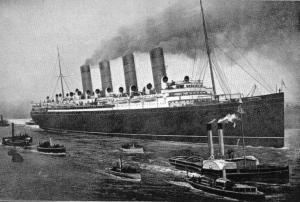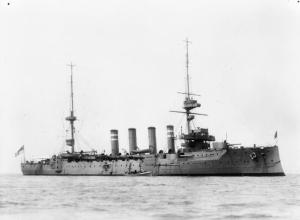Wilhelmina Tobias: Life and Labour
Wilhelmina only covers her childhood in her memoir meaning that she covers none of her working life and includes no details about her first job or her own experiences within the labour market. However, she does include some indications as to her father’s occupation, a ship builder, whilst also giving some insights into the links between her area and ship manufacturing which give an indication of the pride and identity the working classes and Wilhelmina’s family felt in their labour.
The other person mentioned in the memoir mentioned most often also undertakes a job of which she is very proud but is unpaid, Wilhelmina’s mother. When Wilhelmina’s mother is mentioned it is purely in the home environment, and this in itself is telling of the adult life Wilhelmina may have lived despite the increased opportunities afforded to women in the labour market. As I mentioned in my post on Home and Family, Wilhelmina seems to believe that a mothers place is in the home, which can itself be investigated.

As a member of a working class family, Wilhelmina’s father worked long hours whilst her mother was always available in the home. Wilhelmina states that ‘all our working class neighbourhood I never knew one mother who went out to work. However poor, they “cut their coat according to their cloth” as my mother was fond of saying. In other words what they couldn’t have they did without [and] seemed contented enough so long as their menfolk and children were kept clean [and] fed.’ This is indicative of the attitudes amongst the working classes around the turn of the 19th century however, these attitudes soon changed with the onset of the Great War and women were asked to pitch in with the war effort.

Wilhelmina sees great pride in the upbringing her mother gives her which is similar to the pride her mother and father feel for the shipbuilding industry in Newcastle. A lot of the major events that Wilhelmina remembers are to do with the sea for instance, the launch of the Mauritania and the drowning of Lord Kitchener. Especially telling in this regard is her Mother’s reaction the news of the sinking of the Titanic, an event that is underlined in the memoir. Wilhelmina describes how her mother ‘sat and wept at this, not because we had lost someone, but being a sea faring and ship building district any disaster at sea had a profound effect on the whole community’

The sense of community fostered by the ship building trade can be likened to some of Marx theories on the politics of labour. Wilhelmina’s fathers shared experience of exploitation with his fellow workers, according to Marx, gave rise to class-consciousness and recognition of their work that was different to what had existed beforehand. This class-consciousness and solidarity saw the formation of unions and political organisations of working class with an emphasis on defending ‘fair wages’, justice in the workplace and protection in the workplace. The formation of these unions coincided with the beginnings of the Labour party and Wilhelmina describes the beginnings of her local Labour club from a first hand account on the very first page of this account, To read more about this please see my post on Politics and Protest.
Eugenio Biagini describes how these currents of radicalism and pride within the workplace fostered an environment that instigated the formation of first, the Labour Representation Committee and subsequently the labour party in his book Currents of Radicalism: Popular Radicalism, Organised Labour and Party (1991). Wilhelmina’s father was one of those who felt labour conditions and pay should be improved and himself helped form his local Labour club.
Works Cited
Biagini, E. (1991) ‘Currents of Radicalism: Popular Radicalism, Organised Labour and Party’ Cambridge University Press, London. P188-190
Marx, K, Engels, F. (1998) ‘The Communist Manifesto’ Penguin group, New York. P34
Images
Fig. 1
Fig 2.
Fig 3.

Leave a Reply